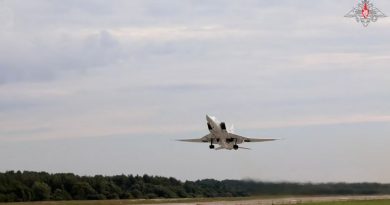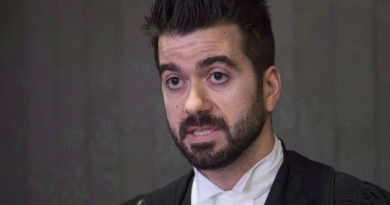Leaders ask how their groups fit in Dene Nation at annual assembly in Northern Canada
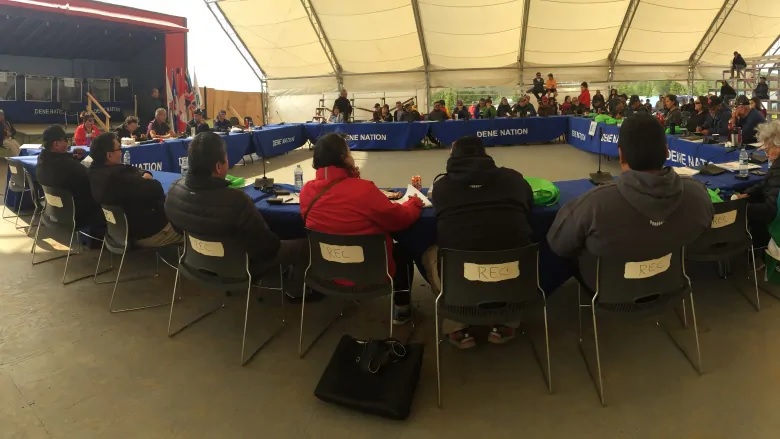
Though the theme of the 49th Dene National Assembly was “one drum, many heartbeats,” for many present, the theme was how do different Indigenous groups fit within the Dene Nation.
“As a leader of the Gwich’in Tribal Council … I’m really here to help determine for the Gwich’in as a land claim body, how do we fit in? Where can we fit in? Do we fit in at all in the Dene Nation?” said Bobbie Jo Greenland-Morgan, Grand Chief of Gwich’in Tribal Council, during the three-day summit at Midway Lake, near Fort McPherson, N.W.T.
“Of course, we want to be a part of the Dene Nation. We want to work together at a national level, international level.”
Many other leaders and delegates shared similar sentiments this week during the assembly, which started a day late after the plane carrying many attendees to Inuvik was forced to fly into Yellowknife due to a medical emergency on board.
With five regional governments — the Gwich’in, Sahtu, Dehcho, Tlicho and Akaitcho — pursuing land claim settlements and self-government agreements with the federal and territorial governments, the fundamental purpose of the Dene Nation was called into question.
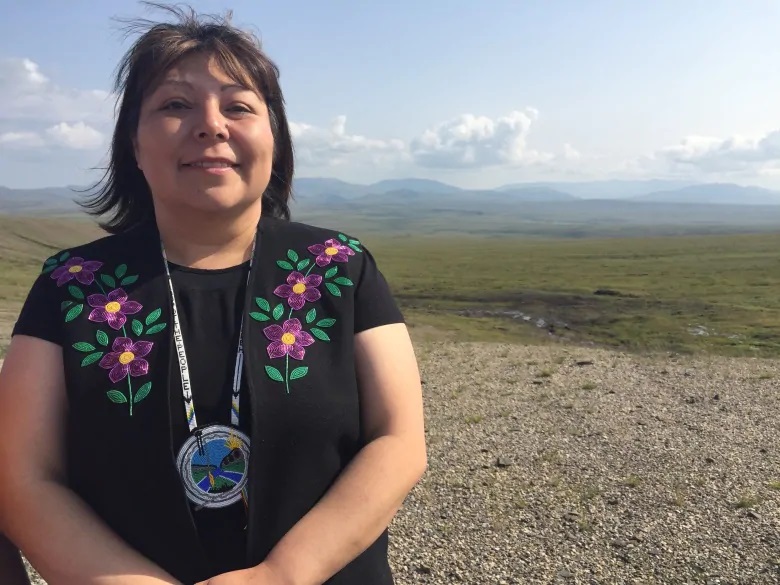
But people in attendance also spoke of the importance of being united.
Dene National Chief Norman Yakeleya talked about being elected on a platform of “rebuilding … the Dene Nation, uniting of the Dene people.”
Yakeleya said one of his main concerns is that Dene Nation’s constitution is outdated, and needs changes to better reflect “the realities of the regions.”
Adapting the Dene Nation constitution
“It’s a much-needed conversation because of the realities of the land claims and the constitution that was developed when Dene Nation was formed,” said Yakeleya.
“There were no land claim agreements, there were no self-government agreements. It was more of a political drive of recognition of the Dene rights and coming forth as a nation and how do they interact with the federal and territorial governments.”
Yakeleya told the leaders and delegates that although reworking the constitution is something he feels is important, it’s “you chiefs who are the boss. The chiefs are the ones who are going to determine the constitution work.”
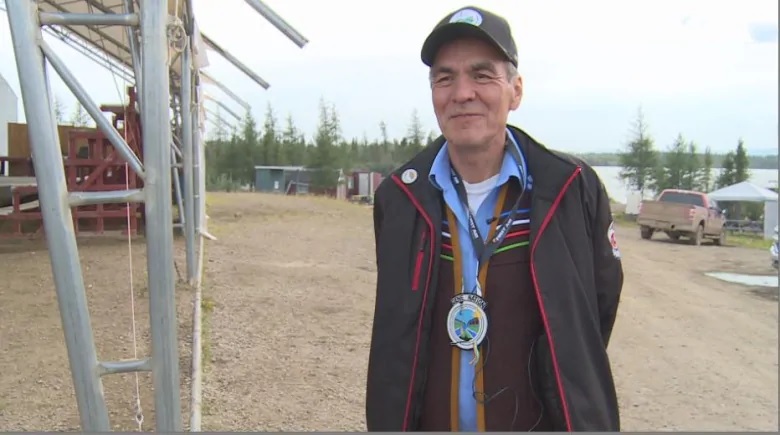
Some however, warned against making hasty changes to the Dene Nation’s founding document.
The Dene Nation’s constitution is a “foundational part of [Fort] Good Hope’s self-government negotiating position,” said Daniel T’seleie, K’ahsho Got’ine chief negotiator.
“Regardless of where Dene Nation goes, that declaration is something that belongs to and is used by all Dene, and Good Hope’s going to continue to use that declaration as we move forward in self-government negotiations.”
During the assembly, a working group was struck to examine the constitution. It will include delegates from each Indigenous group.
Andrew Charlie, a director for Ehdiitat Gwich’in Council in Aklavik, said Yakeleya’s vision for the constitution is “moving in the right direction.”
Resolutions made during the assembly were voted on behind closed doors.
Related stories from around the North:
Canada: Lack of consultation stalling land-claim agreement in Northern Canada, Dene Chief says, CBC News
Finland: Sámi youth oppose proposed Arctic rail line in northern Finland, Yle News
Norway: Inuit, Sami leading the way in Indigenous self-determination, study says, CBC News
Sweden: Report sheds light on Swedish minority’s historic mistreatment, Radio Sweden


